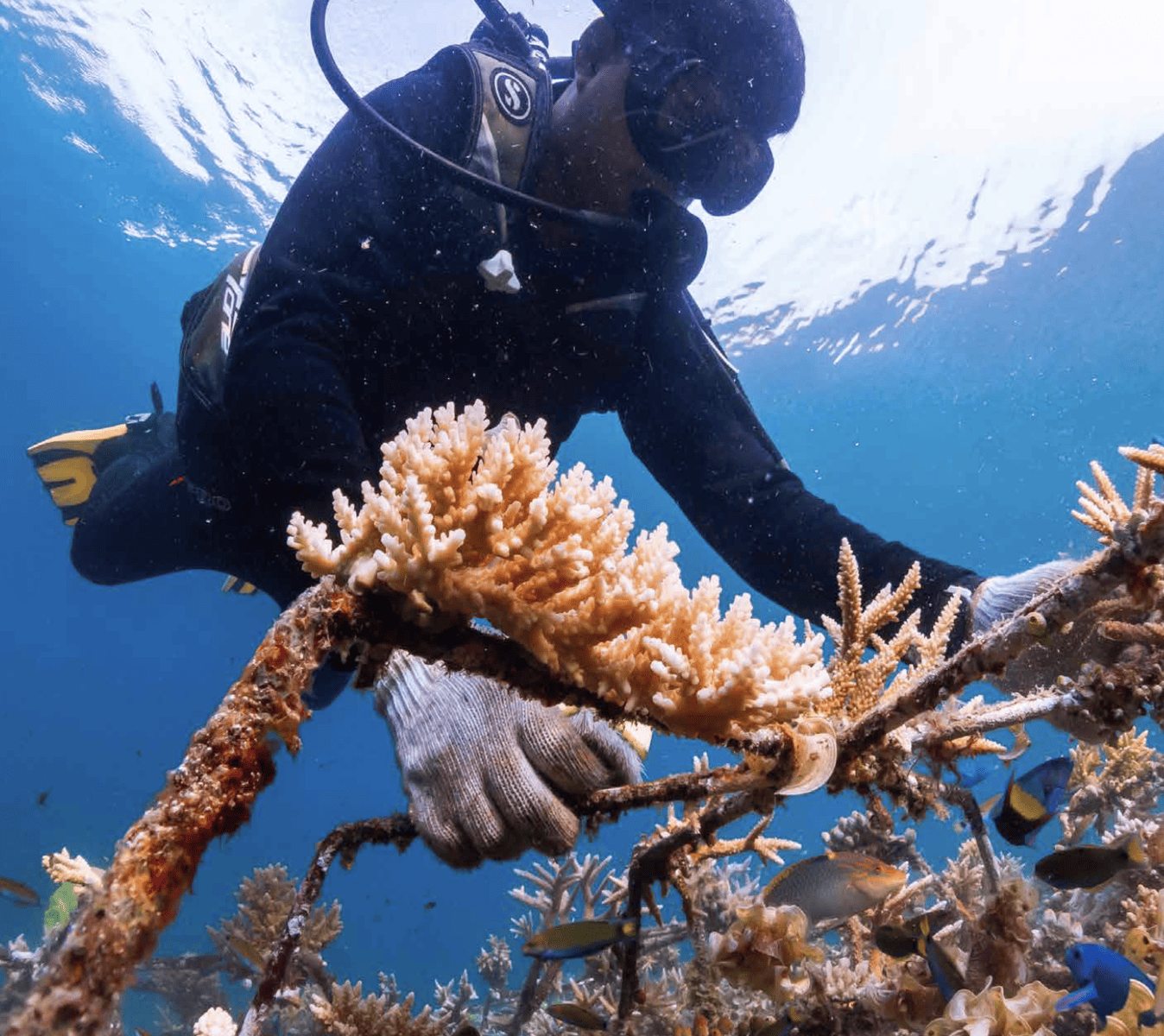Bill French
Special to The Lake Report
The Goettler Foundation and the Rotary Club of Niagara-on-the-Lake have teamed up to help fund a $65,000 coral reef restoration project in Indonesia.
The reef is in the Misool Marine Reserve of Raja Ampat, an archipelago in the western Pacific Ocean off Indonesia’s southwest coast.
Coral reefs are often referred to as the “rainforest of the sea” and the Misool reefs are the highest priority for conservation.
Dr. Mark Erdmann, a marine biologist, coral reef ecologist and vice-president of Conservation International’s Asia-Pacific marine programs, says, “Misool represents one of the most pristine reef systems left on Earth — one of only a handful of places in the universe where biodiversity is improving rather than declining.”
The Goettler Foundation/Rotary Club of NOTL Reef Restoration and Environmental Education Project scales up Misool’s transplantation activities through community engagement, data collection and monitoring.
The project engages high school students through a series of educational and practical activities, designed to empower the local community to become changemakers and guardians.
An environmental education program was developed and delivered in two high schools to 123 students. Pre- and post-lesson testing showed a 78 per cent increase in environmental knowledge.
In addition to the in-school program, outreach staff repurposed the lessons into games and marine life colouring books for younger children in the surrounding villages.
The Goettler Foundation and the Rotary Club of Niagara on the Lake are elated to be engaging Raja Ampat youth in shaping a brighter, sustainable future for their community.
Club president Carol Lipsett thanked the Goettler Foundation “for their ongoing support of our work and specifically for their support of this critical reef restoration project.”
Vaughn Goettler said, “As the planet reels from the effects of humankind’s activities over the years, it is an honour and a privilege to participate in the restoration of our vital coral reefs.”
“They are truly the ‘lungs of the planet’ and as goes their health, so goes the health of the entire ecosystem that nourishes us all.”
Its waters are home to more than 600 species of coral (the entire Caribbean region contains fewer than 60), six of the world’s seven marine turtle species and more than 2,000 species of reef fish.
The diversity of coral reefs is particularly impressive given that reefs cover less than 0.1 per cent of the oceans’ surface area.
Coral reefs benefit an estimated 1 billion people, either directly or indirectly, from the many ecosystem services they provide.
They provide up to $2.7 trillion per year in services, including providing critical natural infrastructure that protects increasingly vulnerable coastlines from storms and flooding, food security for vulnerable populations, tourism revenue and even raw materials for life-saving medicines.
Despite their importance, coral reefs face numerous threats, including climate change, coral bleaching, overfishing, pollution and habitat destruction.
The United Nations has reported that 70 per cent of the Earth’s coral reefs are threatened and 44 per cent are already destroyed or at imminent risk of collapse.
Conservation efforts are crucial to protect and sustain these vital ecosystems.
The Misool Foundation is a non-profit focused on marine conservation efforts.
It manages a suite of conservation programs that combine marine law enforcement, waste management, community empowerment, research and marine monitoring and species conservation that consistently deliver measurable conservation results.
A combination of Ranger patrols and community outreach ended dynamite fishing and coral mining in 2014, but some of those damaged reefs have not recovered.
The reef restoration project was developed to re-establish those coral reefs.
Using a technique called coral transplantation, the Misool team of coral farmers (including marine scientists, Misool Rangers and university students), create artificial reefs from wire mesh frames on areas of broken coral.
Living corals are transplanted onto the frames, then cleaned and monitored so they have the best chance of survival. Over time, these reefs will grow naturally, providing new habitat for fish, corals and other reef creatures.
The team now manages six reef sites in the Misool reserve with an impressive survival rate of 82.4 per cent.
The Rotary project supported the coral farmers team in transplanting more than 1,500 square kilometres of reefs, contributing to Misool’s target of 2,500 square kilometres by the end of 2023.
Bill French is a member of the Rotary Club of Niagara-on-the-Lake.










